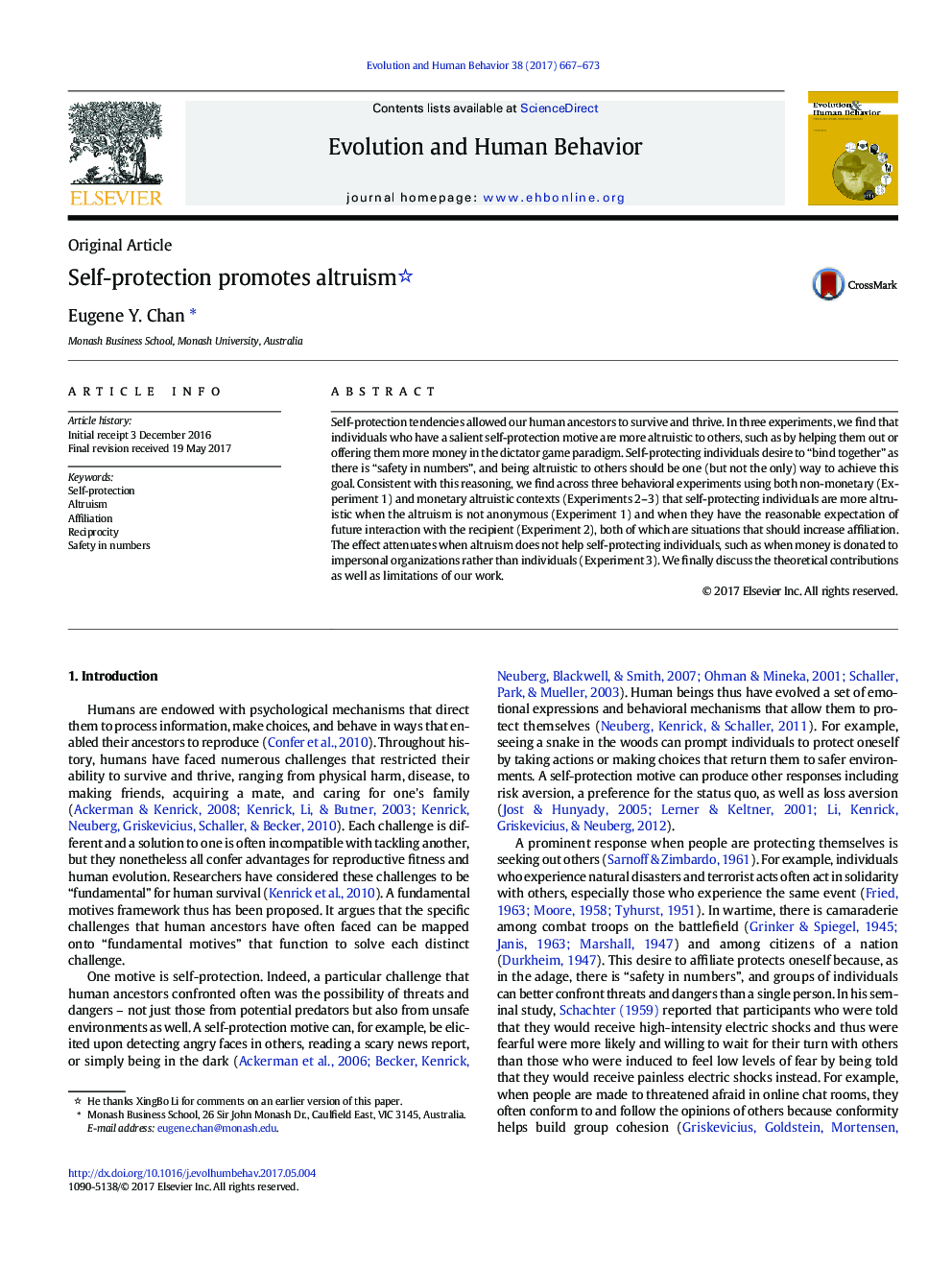| کد مقاله | کد نشریه | سال انتشار | مقاله انگلیسی | نسخه تمام متن |
|---|---|---|---|---|
| 5044800 | 1370633 | 2017 | 7 صفحه PDF | دانلود رایگان |
- Self-protection tendencies allowed our human ancestors to survive and thrive.
- One primary strategy to protect oneself is to affiliate as there is “safety in numbers”.
- One way to pursue this strategy would being more altruistic to others.
- Thus, self-protection increases altruism, but only when there is the sufficient possibility of it being reciprocated.
Self-protection tendencies allowed our human ancestors to survive and thrive. In three experiments, we find that individuals who have a salient self-protection motive are more altruistic to others, such as by helping them out or offering them more money in the dictator game paradigm. Self-protecting individuals desire to “bind together” as there is “safety in numbers”, and being altruistic to others should be one (but not the only) way to achieve this goal. Consistent with this reasoning, we find across three behavioral experiments using both non-monetary (Experiment 1) and monetary altruistic contexts (Experiments 2-3) that self-protecting individuals are more altruistic when the altruism is not anonymous (Experiment 1) and when they have the reasonable expectation of future interaction with the recipient (Experiment 2), both of which are situations that should increase affiliation. The effect attenuates when altruism does not help self-protecting individuals, such as when money is donated to impersonal organizations rather than individuals (Experiment 3). We finally discuss the theoretical contributions as well as limitations of our work.
Journal: Evolution and Human Behavior - Volume 38, Issue 5, September 2017, Pages 667-673
